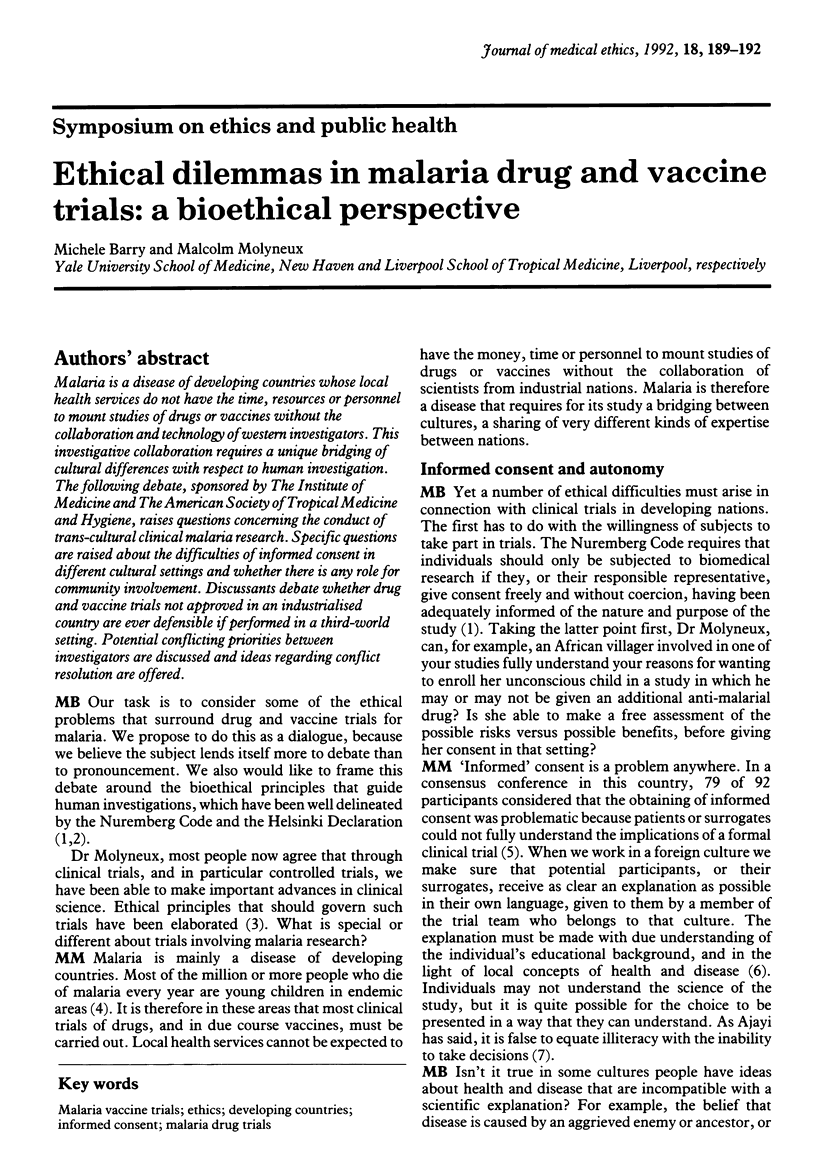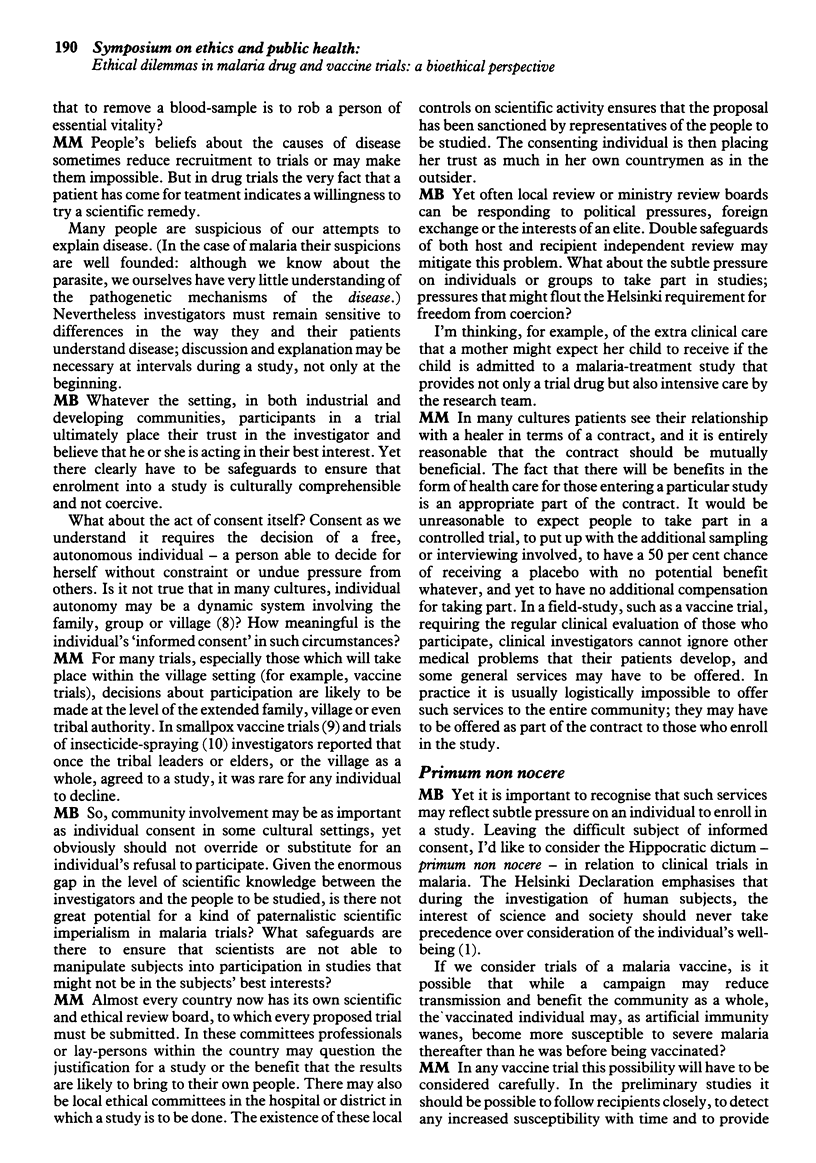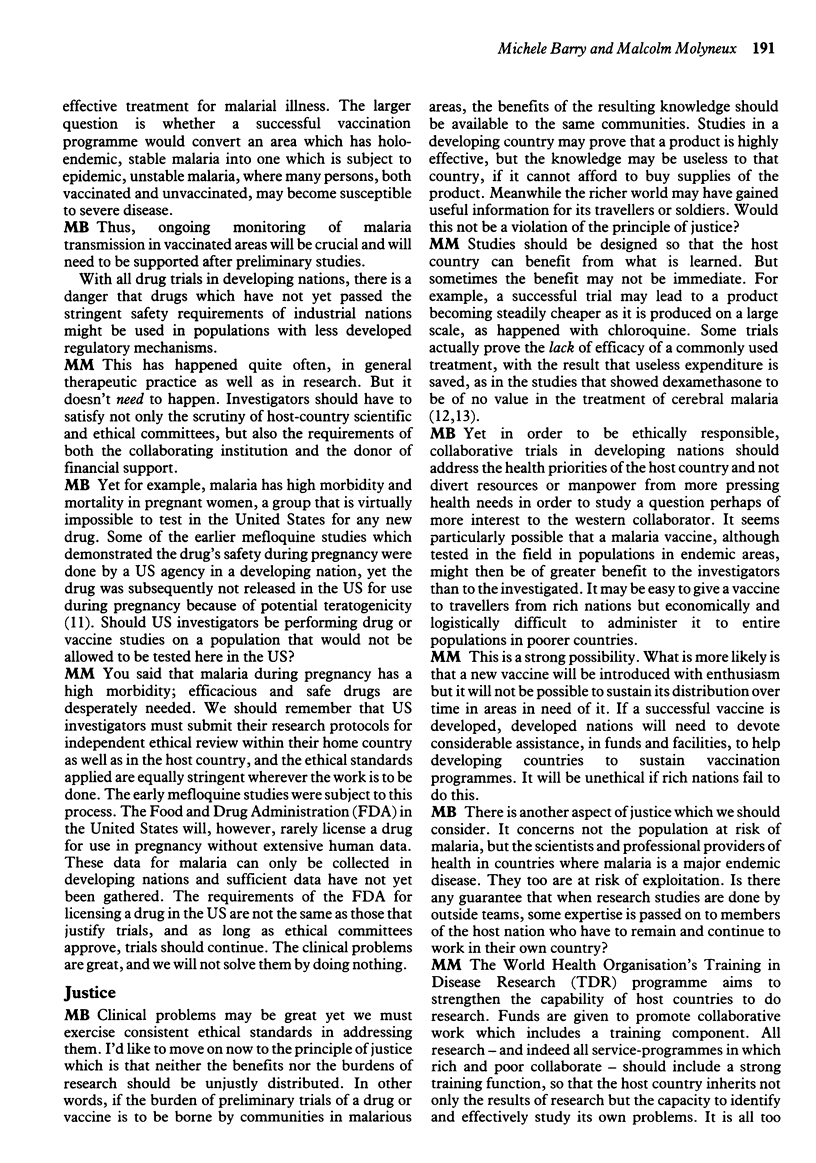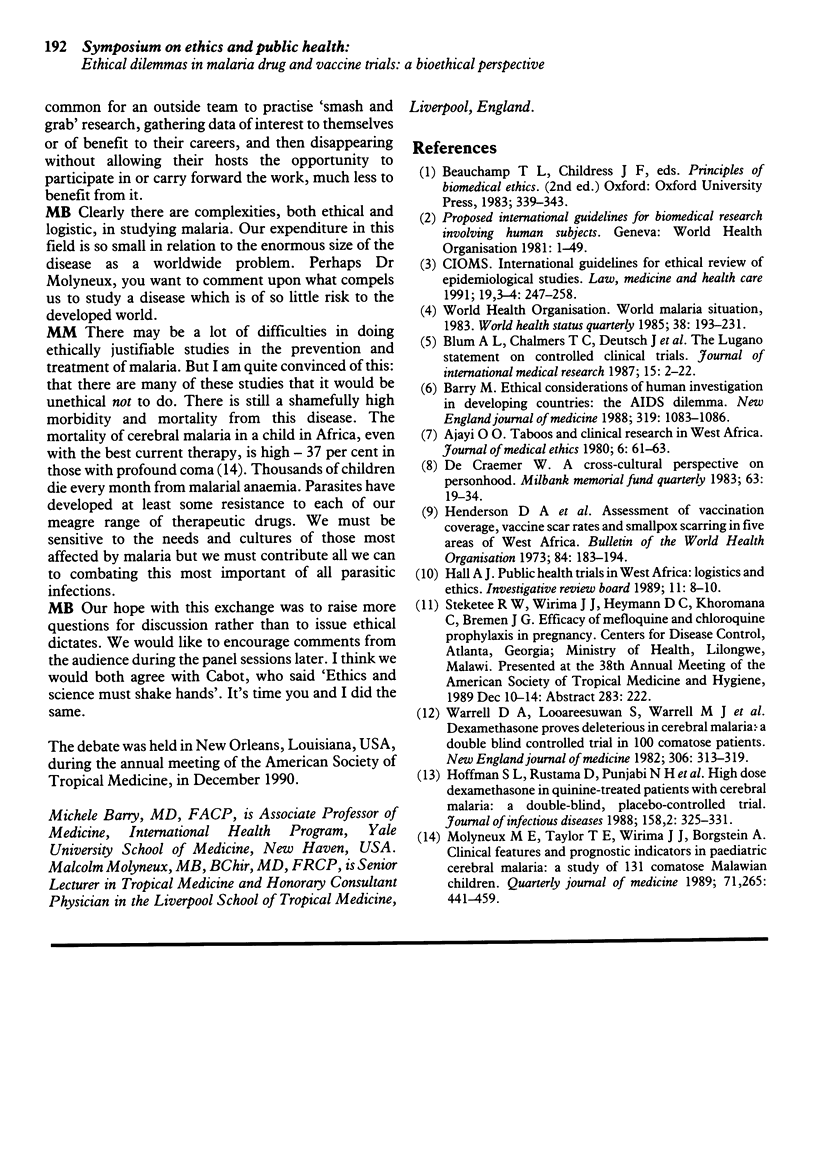Abstract
Malaria is a disease of developing countries whose local health services do not have the time, resources or personnel to mount studies of drugs or vaccines without the collaboration and technology of western investigators. This investigative collaboration requires a unique bridging of cultural differences with respect to human investigation. The following debate, sponsored by The Institute of Medicine and The American Society of Tropical Medicine and Hygiene, raises questions concerning the conduct of trans-cultural clinical malaria research. Specific questions are raised about the difficulties of informed consent in different cultural settings and whether there is any role for community involvement. Discussants debate whether drug and vaccine trials not approved in an industrialised country are ever defensible if performed in a third-world setting. Potential conflicting priorities between investigators are discussed and ideas regarding conflict resolution are offered.
Full text
PDF



Selected References
These references are in PubMed. This may not be the complete list of references from this article.
- Ajayi O. O. Taboos and clinical research in West Africa. J Med Ethics. 1980 Jun;6(2):61–63. doi: 10.1136/jme.6.2.61. [DOI] [PMC free article] [PubMed] [Google Scholar]
- Barry M. Ethical considerations of human investigation in developing countries: the AIDS dilemma. N Engl J Med. 1988 Oct 20;319(16):1083–1086. doi: 10.1056/NEJM198810203191609. [DOI] [PubMed] [Google Scholar]
- Blum A. L., Chalmers T. C., Deutsch E., Koch-Weser J., Rosén A., Tygstrup N., Zentgraf R. The Lugano statements on controlled clinical trials. J Int Med Res. 1987 Jan-Feb;15(1):2–22. doi: 10.1177/030006058701500102. [DOI] [PubMed] [Google Scholar]
- De Craemer W. A cross-cultural perspective on personhood. Milbank Mem Fund Q Health Soc. 1983 Winter;61(1):19–34. [PubMed] [Google Scholar]
- Hall Andrew J. Public health trials in West Africa: logistics and ethics. IRB. 1989 Sep-Oct;11(5):8–10. [PubMed] [Google Scholar]
- Henderson R. H., Davis H., Eddins D. L., Foege W. H. Assessment of vaccination coverage, vaccination scar rates, and smallpox scarring in five areas of West Africa. Bull World Health Organ. 1973;48(2):183–194. [PMC free article] [PubMed] [Google Scholar]
- Hoffman S. L., Rustama D., Punjabi N. H., Surampaet B., Sanjaya B., Dimpudus A. J., McKee K. T., Jr, Paleologo F. P., Campbell J. R., Marwoto H. High-dose dexamethasone in quinine-treated patients with cerebral malaria: a double-blind, placebo-controlled trial. J Infect Dis. 1988 Aug;158(2):325–331. doi: 10.1093/infdis/158.2.325. [DOI] [PubMed] [Google Scholar]
- Molyneux M. E., Taylor T. E., Wirima J. J., Borgstein A. Clinical features and prognostic indicators in paediatric cerebral malaria: a study of 131 comatose Malawian children. Q J Med. 1989 May;71(265):441–459. [PubMed] [Google Scholar]
- Warrell D. A., Looareesuwan S., Warrell M. J., Kasemsarn P., Intaraprasert R., Bunnag D., Harinasuta T. Dexamethasone proves deleterious in cerebral malaria. A double-blind trial in 100 comatose patients. N Engl J Med. 1982 Feb 11;306(6):313–319. doi: 10.1056/NEJM198202113060601. [DOI] [PubMed] [Google Scholar]


